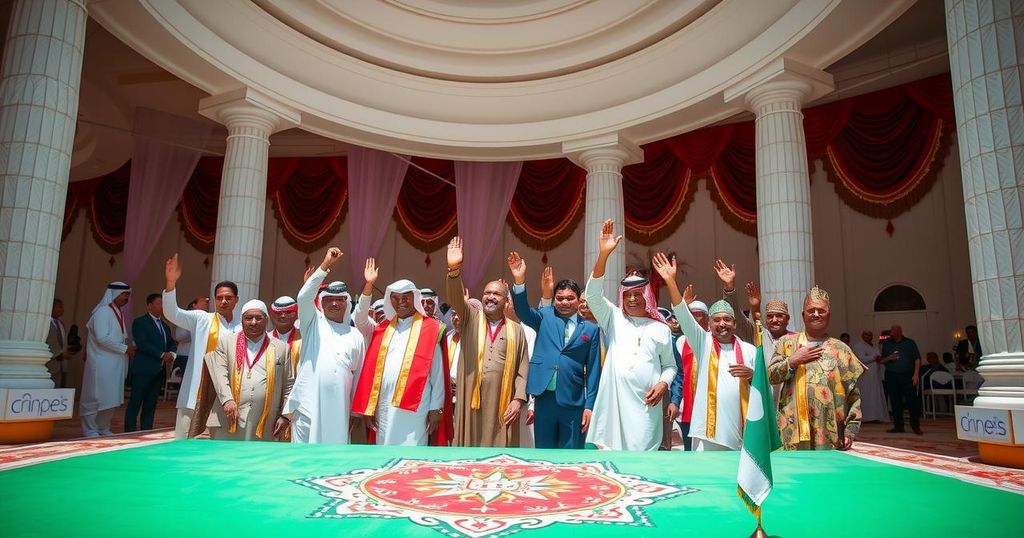World news
AFRICA, AHMED BARTCHIRET, ANGE, ASIA, BURKINA FASO, CHAD, CHINA, DE, DEBY, DEMOCRACY, DEMONSTRATIONS, ELECTIONS, EUROPE, EUROPE/ASIA, FRANCE, GOVERNMENT, MAHA, MALI, NATIONAL ASSEMBLY, NIGER, OPPOSITION, PARIS, PATRIOTIC SALVATION MOVEMENT, REUTERS, RUSSIA, SUCCES MASRA
Michael Grant
0 Comments
Chad’s Ruling Party Secures Majority in Controversial Boycotted Elections
Chad’s ruling Patriotic Salvation Movement (MPS), led by President Mahamat Idriss Deby, won a majority in parliamentary elections that faced opposition boycott. The MPS secured 124 of 188 seats, with a reported participation rate of 51.56%. Deby, who became president in May, has recently shifted Chad’s defense policies away from France while dealing with ongoing security challenges.
The parliamentary elections in Chad, held last month, have concluded with the ruling Patriotic Salvation Movement (MPS), led by President Mahamat Idriss Deby, securing a significant majority. Official results from the National Elections Management Agency (ANGE) indicate that the MPS won 124 of the 188 available National Assembly seats. Despite an opposition boycott, which argued that the elections were neither transparent nor credible, Deby’s government has framed the results as a pivotal moment in the nation’s democratic transition. The participation rate was reported at 51.56%. Additionally, political agency head Ahmed Bartchiret announced that 38 political groups would be represented in the assembly, although the exact division of seats among non-MPS members remains unclear.
President Deby ascended to power following a tumultuous period marked by his declaration as interim leader after his father was killed in combat in 2021. Since his electoral victory in May, Deby has initiated a series of shifts, including the cessation of defense cooperation with France and a pivot away from Western military partnerships. This aligns Chad with countries such as Mali and Niger, which have also distanced themselves from former colonial powers in favor of establishing closer ties with Russia. Recently, the Chadian government reported that its security forces thwarted an attempt to destabilize the presidency, underscoring ongoing tensions in the region.
Chad, a landlocked country in north-central Africa, has experienced prolonged instability, particularly following the assassination of long-time President Idriss Deby Itno in 2021. His son, Mahamat Idriss Deby, assumed interim leadership and has since worked to consolidate power amid significant domestic and international scrutiny. The ruling party’s recent electoral success, amidst an opposition boycott, is part of an ongoing narrative concerning Chad’s path towards a stable democracy, contrasting with its military and diplomatic maneuvers influenced by regional security dynamics and shifting alliances.
The recent parliamentary election in Chad has reaffirmed the ruling Patriotic Salvation Movement’s position of power, despite notable opposition boycotts that contest the legitimacy of the electoral process. President Mahamat Idriss Deby’s administration continues to navigate complex regional dynamics, particularly in relation to international partnerships and internal security threats. As the nation begins to form its assembly with new representation, critical issues surrounding democracy and governance remain paramount.
Original Source: www.dw.com




Post Comment